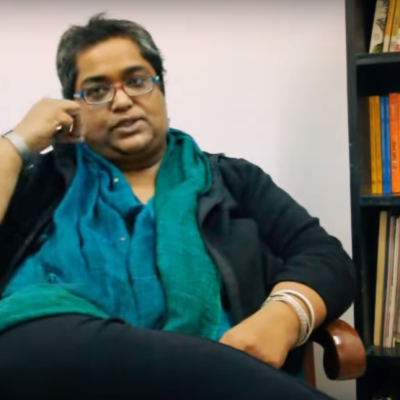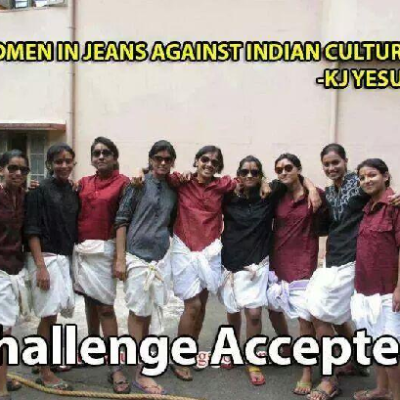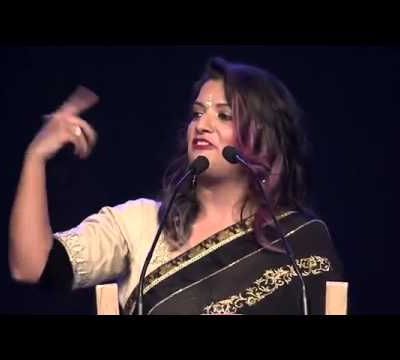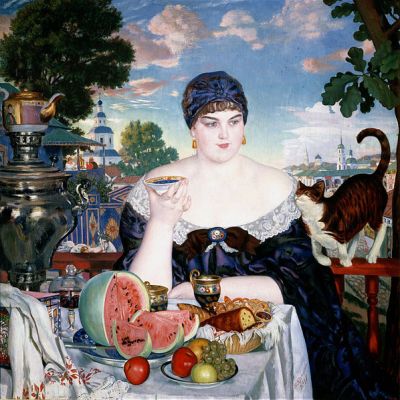Feminism
Even in these times when sexuality is talked about more than ever before, even as we are beginning to talk about sexual pleasure and not just violations, acknowledging our fantasies isn’t easy, particularly if they are of the kind that seem to defy our politics.
सामान्य तौर पर एक नारीवादी माँ का काम, जो रोज़मर्रा की चर्चा में यौनिकता के बारे में बात करने के लिए दृढ संकल्पी हो, अनिश्चितता से भरा है। अन्य नारीवादी दोस्तों के साथ बातचीत और संसाधनों जैसे तारशी की अभिभावकों के लिए लिखी गई उत्कृष्ठ किताब द यलो बुक से उत्पन्न मेरी रणनीति है कि सवालों का ठीक-ठीक जवाब देना, जब भी वे पूछे जाएँ। हालाँकि, मुझे उम्र के हिसाब से जानकारी देना सीखने में समय लगा।
वह एक ऐसे परिवार में बड़ी हुई थीं जहाँ बनने संवरनें की सराहना की जाती थी, इसलिए कपड़ों के प्रति उनकी चाहत को कभी भी विलासिता की तरह नहीं देखा गया। उनकी माँ की शख्शियत की एक विशिष्ट पहचान, उनकी बड़ी सी बिंदी और सूती साड़ी हमेशा अपनी जगह पर रहती थी, चाहे दिन का कोई भी समय हो, चाहे वो खाना बना रहीं हों, धूप या बारिश में बाहर गई हों, सो रहीं हों या बस अभी ही जागी हों, हंस रहीं हों, या रो रहीं हों। उनकी और उनकी बहन के लिए, उनकी माँ की फैशन को लेकर एक ही सलाह थी, “हमेशा ऐसे तैयार होकर रहो जैसे आप बाहर जा रहे हों, भले ही आप सारा दिन घर पर ही हों।” अपनी माँ की सलाह के बावजूद, वह घर पर ‘गुदड़ी के लाल’ की तरह और बाहर जाते वक़्त ‘सिंडरेला’ की तर्ज़ पर चलने वाली बनी।
The link between women’s clothing and patriarchy is important to acknowledge and understand if we are to address some pertinent questions around women’s agency and ability to exercise control over their choices, bodies and sexuality – questions that feminists around the world, including in South Asia, continue to struggle with.
Feminist critiques are often critiques of relationship structures: marriage, the joint and nuclear family, monogamy, and heteronormativity. Patriarchy, fundamentally a system of inheritance, finds a natural home in these structures.
This is why I’ve often wondered: how do feminists imagine and navigate romantic relationships? Do they have to constantly be thinking about and watching out for the many ways in which power, privilege, autonomy and entitlement manifest in their relationships and dating culture? It seems rather unromantic to do so.
Often when we speak of families and family history, we talk genetics, traditions and inheritance of all kinds. Somehow our relationship by blood or otherwise to a clan is supposed to help us identify our place in the universe. So there’s family medical history, family culture, family traditions of food and career. But sexuality? A family history that focuses on sexuality? What would that even mean?
Within the urban sphere, feminist discourse has for the past few decades centred on the constant anxiety and anticipation of violence, which permeates all of women’s movements within South Asian cities. However, something unusual is happening to that discourse in this cultural moment. Feminists are systematically and strategically shifting their attention from the anticipation of violence to the active search for pleasure in public space.
“Everything is funny, if you can laugh at it.” – Lewis Carroll Lewis Carroll can be said to have a…
In March 2015, a popular Indian comic, Abish Mathew, performed at a college festival at the National Law University (NLU)…
Twitter has been rumbling with chuckles and giggles over the last few days with a trending slew of Tweets and…
At the now infamous All India Bakchod Knockout roast last year, comedian Aditi Mittal told this joke about her fellow…
“Ab dil karta hai haule haule se Main toh khud ko gale lagaun Kisi aur ki mujhko zaroorat kya Main…
I did not know what feminism meant, but I remember being told I’m too rough for a girl. Or, was…
“Mamma, look, that’s a boy giraffe, I can see his penis,” exclaims my four-year-old daughter in delight at her discovery…















